S. Korea to ease controls on loans for home rental: financial regulator
SEOUL, Oct. 14 (Yonhap) -- South Korea will ease tightened controls on loans taken out for home rental as part of efforts to protect people in actual need of borrowing when the government unveils additional measures to reign in household debt this month, the head of the country's financial regulator said Thursday.
Koh Seung-beom, the chief of the Financial Services Commission (FSC), made the remarks in a brief meeting with reporters after a forum in Seoul, adding controls on such loans for home renting through the "jeonse" arrangement will be managed in a "flexible" manner.
"For loans taken out for jeonse in October, November and December, total-amount controls will be applied in a flexible manner," Koh said. "We will allow the growth ceiling for outstanding household debt set at 6 percent to be breached if that is due to a rise in loans for jeonse."
Under South Korea's decades-old jeonse system, tenants pay a large lump-sum deposit, known as key money, to the landlord, which is then returned at the end of the rental agreement, which usually lasts two years. During the lease period, the tenants do not pay monthly rent.
Koh said the government will announce additional measures to reign in household debt next week "at the earliest," adding that those eased measures could be included.
Since July, the FSC has applied stricter lending calculations for mortgage loans, called the debt service ratio (DSR), which measures how much a borrower has to pay for principal and interest in proportion to his or her yearly income.
The decision is part of the government's push to keep a lid on skyrocketing home prices and inflation. But such measures have drawn complaints from people who actually need to borrow to rent a home to live in.
In 2020, household debt grew 7.9 percent on-year. The regulator aims to bring the annual increase to below 6 percent this year and below 5 percent next year.
Household debt, however, is showing no sign of letting up.
Outstanding bank loans to households grew 6.5 trillion won on-month to 1,052.7 trillion won (US$877.9 billion) as of the end of September, according to the Bank of Korea (BOK).
On Tuesday, the BOK kept its policy rate unchanged at 0.75 percent for October but hinted at the possibility of another rate hike next month following a quarter percentage-point increase in August in a bid to curb inflation and household debt.
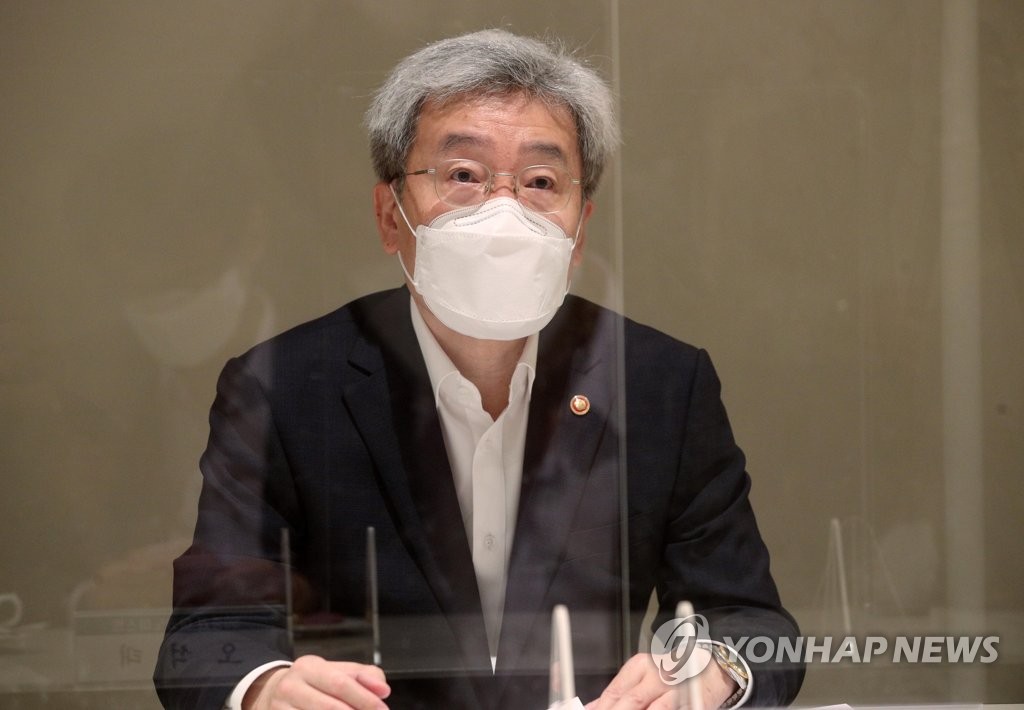
Koh Seung-beom, head of the Financial Services Commission, speaks during a meeting with a group of experts versed in economy and finance at the Hall of Banks in Seoul on Sept. 27, 2021. (Yonhap)
kokobj@yna.co.kr
(END)
-
 BTS' Jungkook's 'Seven' chosen as hottest hit outside U.S.
BTS' Jungkook's 'Seven' chosen as hottest hit outside U.S. -
 From pastime to academic discipline: Exhibition spotlights evolution of Korean embroidery
From pastime to academic discipline: Exhibition spotlights evolution of Korean embroidery -
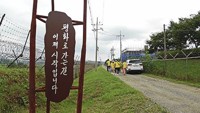 Gov't to open 10 trails near DMZ for visitors next month
Gov't to open 10 trails near DMZ for visitors next month -
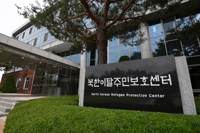 Number of N. Korean defectors entering S. Korea reaches 43 in Q1
Number of N. Korean defectors entering S. Korea reaches 43 in Q1 -
 N. Korea dismantles S. Korean building near shuttered Kaesong complex
N. Korea dismantles S. Korean building near shuttered Kaesong complex
-
 From pastime to academic discipline: Exhibition spotlights evolution of Korean embroidery
From pastime to academic discipline: Exhibition spotlights evolution of Korean embroidery -
 BTS' Jungkook's 'Seven' chosen as hottest hit outside U.S.
BTS' Jungkook's 'Seven' chosen as hottest hit outside U.S. -
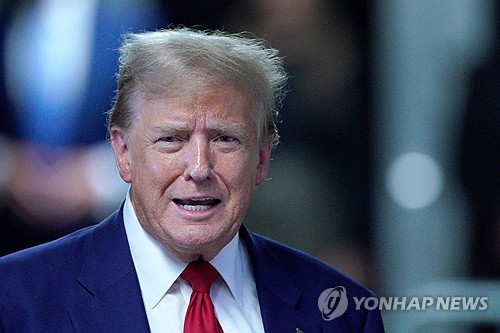 Trump suggests U.S. could withdraw its troops if S. Korea does not contribute more to support USFK: TIME
Trump suggests U.S. could withdraw its troops if S. Korea does not contribute more to support USFK: TIME -
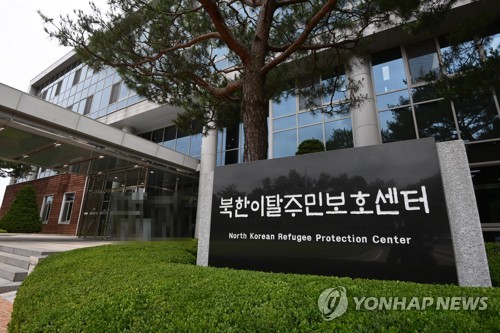 Number of N. Korean defectors entering S. Korea reaches 43 in Q1
Number of N. Korean defectors entering S. Korea reaches 43 in Q1 -
 Gov't to open 10 trails near DMZ for visitors next month
Gov't to open 10 trails near DMZ for visitors next month
-
 S. Korean military shoots down unidentified balloon near western maritime border in March
S. Korean military shoots down unidentified balloon near western maritime border in March -
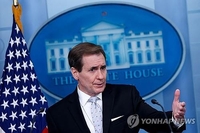 (3rd LD) Russia sent more than 165,000 barrels of refined petroleum to N. Korea in March: White House
(3rd LD) Russia sent more than 165,000 barrels of refined petroleum to N. Korea in March: White House -
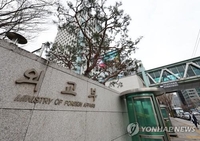 Anti-terrorism alert raised for 5 overseas S. Korean diplomatic missions
Anti-terrorism alert raised for 5 overseas S. Korean diplomatic missions -
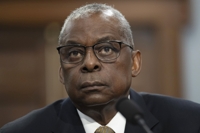 Defense chiefs of U.S., Australia, Japan decry N.K.-Russia military cooperation
Defense chiefs of U.S., Australia, Japan decry N.K.-Russia military cooperation -
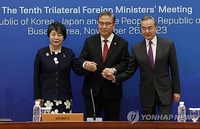 S. Korea, China, Japan to hold trilateral summit May 26-27: report
S. Korea, China, Japan to hold trilateral summit May 26-27: report




















